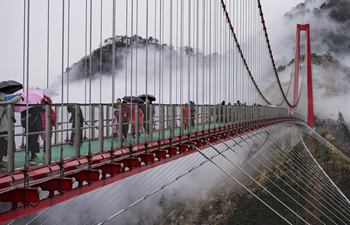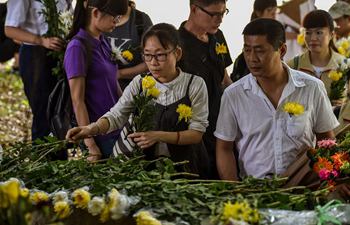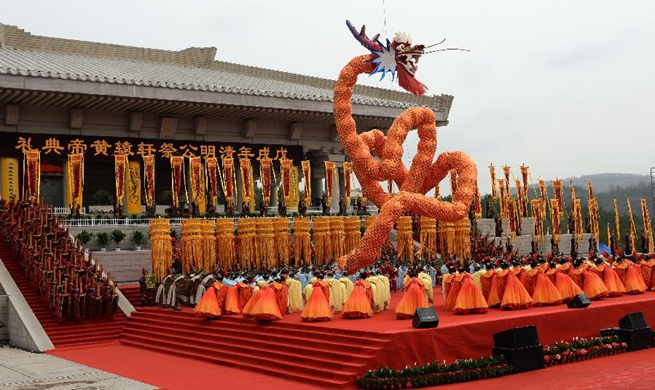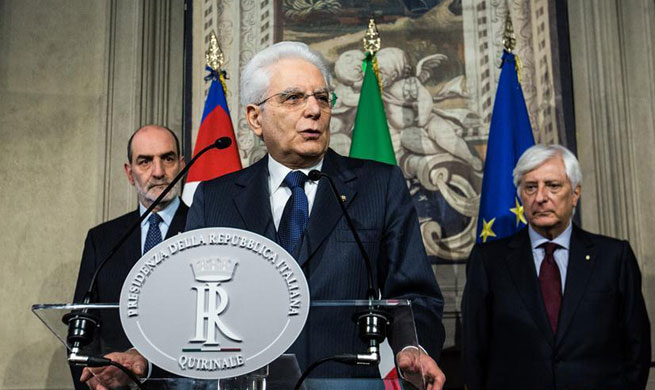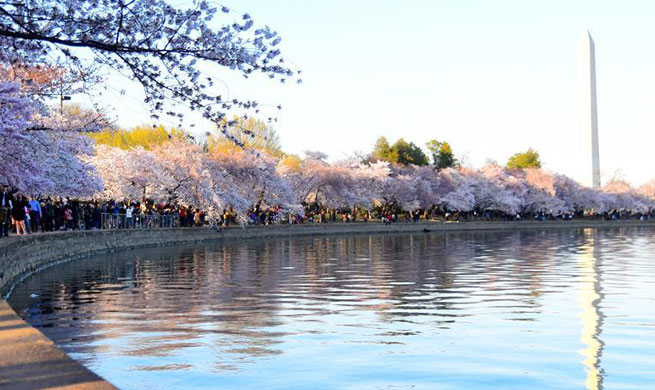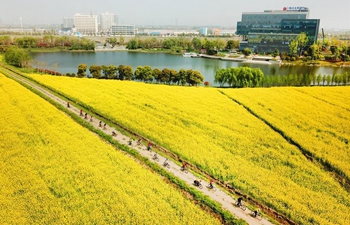by Chris Dalby
BRASILIA, April 5 (Xinhua) -- Brazil's Supreme Federal Court on Thursday rejected a habeas corpus motion by former president and presidential candidate Luiz Inacio Lula da Silva, which sharply changed the outlook for Brazil's general elections in October.
Federal judge Sergio Moro, who oversaw Brazil's sprawling corruption investigation "Operation Car Wash," on Thursday issued an arrest warrant for Lula and ordered the former president to turn himself in to the authorities in Curitiba, capital of southern Parana State, by 5 p.m. local time (2000 GMT) on Friday to begin a 12 year and one month prison sentence for passive corruption and money laundering.
Moro said in a statement that Lula would be kept apart from other prisoners, with a separate cell reserved for him, "without any risk to his moral or physical integrity."
ELECTORAL LANDSCAPE SHARPLY CHANGED
Earlier in the day, the Workers' Party (PT) said that Lula remained as its presidential candidate although Brazilian media reported Lula had told his close circle that he was essentially out of the presidential race.
"We do not accept this incarceration as a done deal," Senator Gleisi Hoffmann, PT president, told the press.
Under Brazilian law, any politician with a prison sentence is barred from running for political office.
With six months remaining until the October elections, Lula has led opinion polls with about 35 percent of support, which showed clear margins of victory for him among other competitors.
The PT had a clear strategy to support Lula at all costs but now has to consider another representative. It is still unclear which party member will be selected, with former Mayor of Sao Paulo Fernando Haddad and former Bahia Governor Jaques Wagner being choices.
Meanwhile, Lula's imprisonment is an election game-changer, potentially benefitting several candidates who have so far not gained any major advantages.
With Lula out of the race, far-right Jair Bolsonaro of the Social Liberal Party could lead the polls with a support rate of around 20 percent.
However, it would be difficult for Bolsonaro, an advocate of far-right and populist political views, to court Lula's base of rural, working-class families.
Lula's former environment minister, Marina Silva, who currently enjoys a 14 percent support rate, might have a chance to court ballots from the PT, given her track record on social and environmental issues.
As the ruling Brazilian Democratic Movement party has not yet announced its candidate, its decision may be another factor influencing the outcome of the election.
There has been speculation that Henrique Meirelles, current finance minister renowned for pushing the Brazilian economy out of recession, is considering running for president in October.
Meanwhile, President Michel Temer has recently hinted he might seek re-election despite his abysmal approval ratings.
Ciro Gomes, another left-wing politician from the Democratic Labor Party, who served as the minister for national integration under Lula's administration, could also seek PT support, with his campaign issues focusing on defending national sovereignty and Brazil's independence on the world stage.
Finally, the Brazilian Social Democratic Party, another major political force in the country, has nominated Sao Paulo mayor Geraldo Alckmin as its campaign candidate, although he has not become an overwhelming favorite.
POSSIBLE VIOLENCE ON THE HORIZON
One worrying factor is the violence possibly triggered by the elections, which the Supreme Federal Court has warned against.
Analysts also warned that there may be more demonstrations on the way to show support for or protest against Lula, considering there have been some in some major municipalities like Rio de Janeiro and Sao Paulo.
On Thursday, the situation escalated as the head of the army, General Eduardo Villas Boas, warned that the army would put an "end to impunity."
This was seen as a thinly veiled message to the Supreme Federal Court concerning Lula and has been sharply criticized by judges, politicians and the media, who see it as overstepping the army's constitutionally mandated role.
The hope that the October election would resolve Brazil's long-running political crisis seems to be diminishing.




